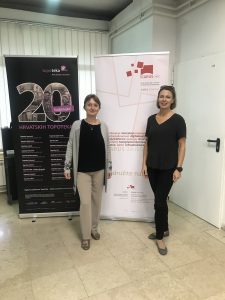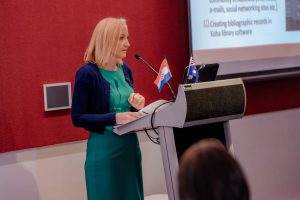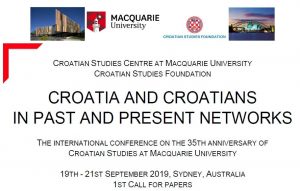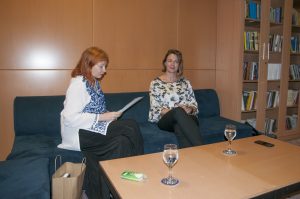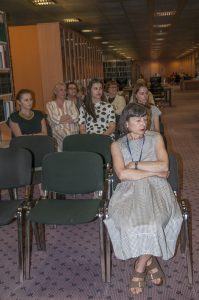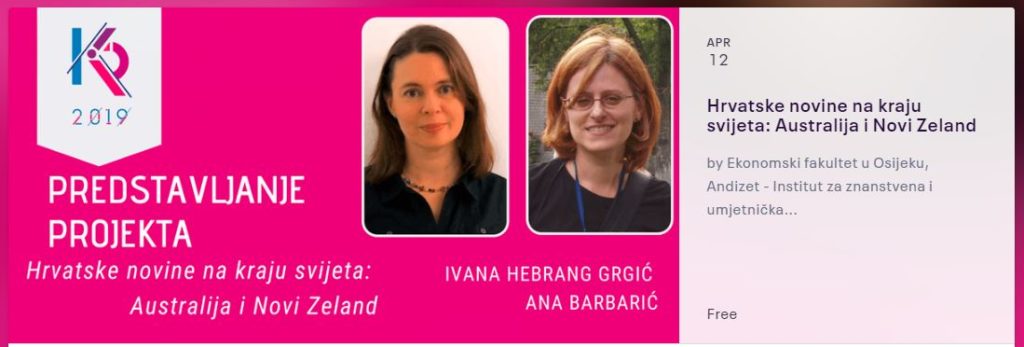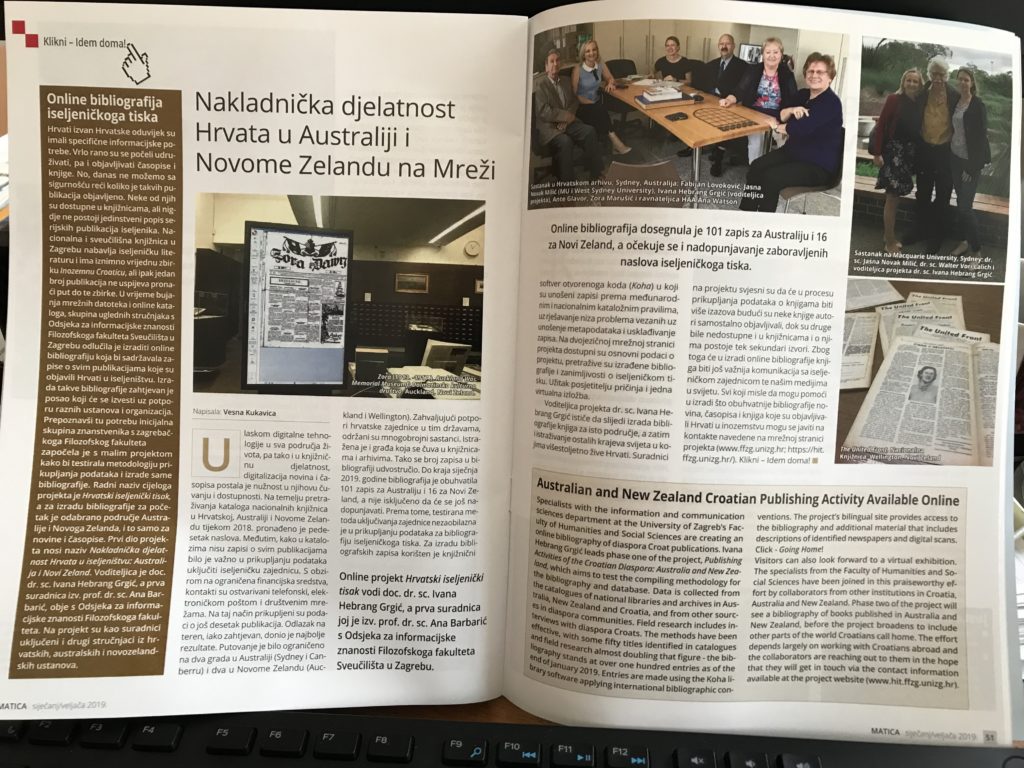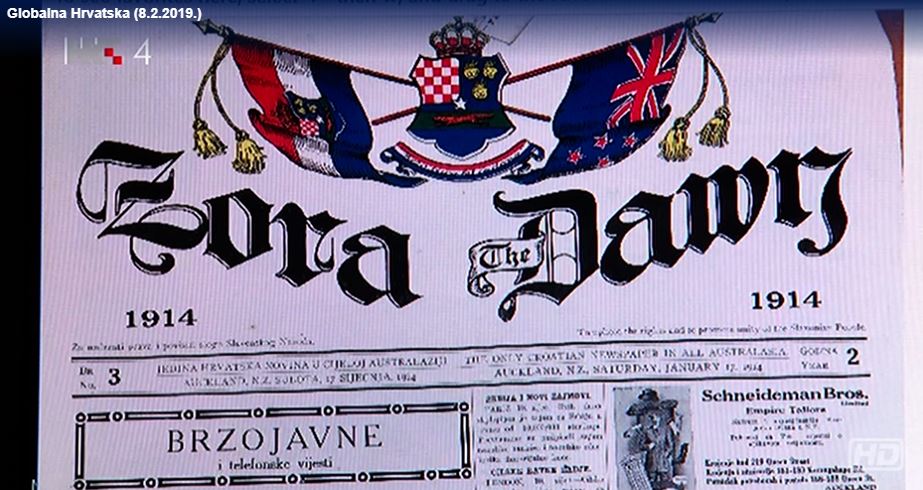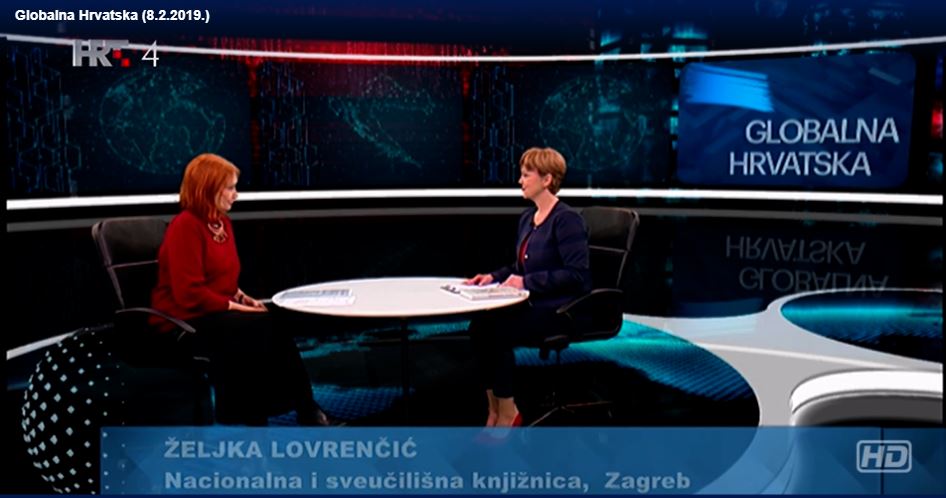Seminar Archives and Publishing: Sources, Heritage, Public was organized by ICARUS Croatia (International Centre for Archival Research) in Gospić, Croatia, from 4th to 5th October 2019. A presentation entitled Heritage Institutions as Access Points to Publications of Croats in Australia and New Zealand was held. In the picture: Vlatka Lemić, president of ICARUS Croatia and Ivana Hebrang Grgić, invited speaker at the seminar.
